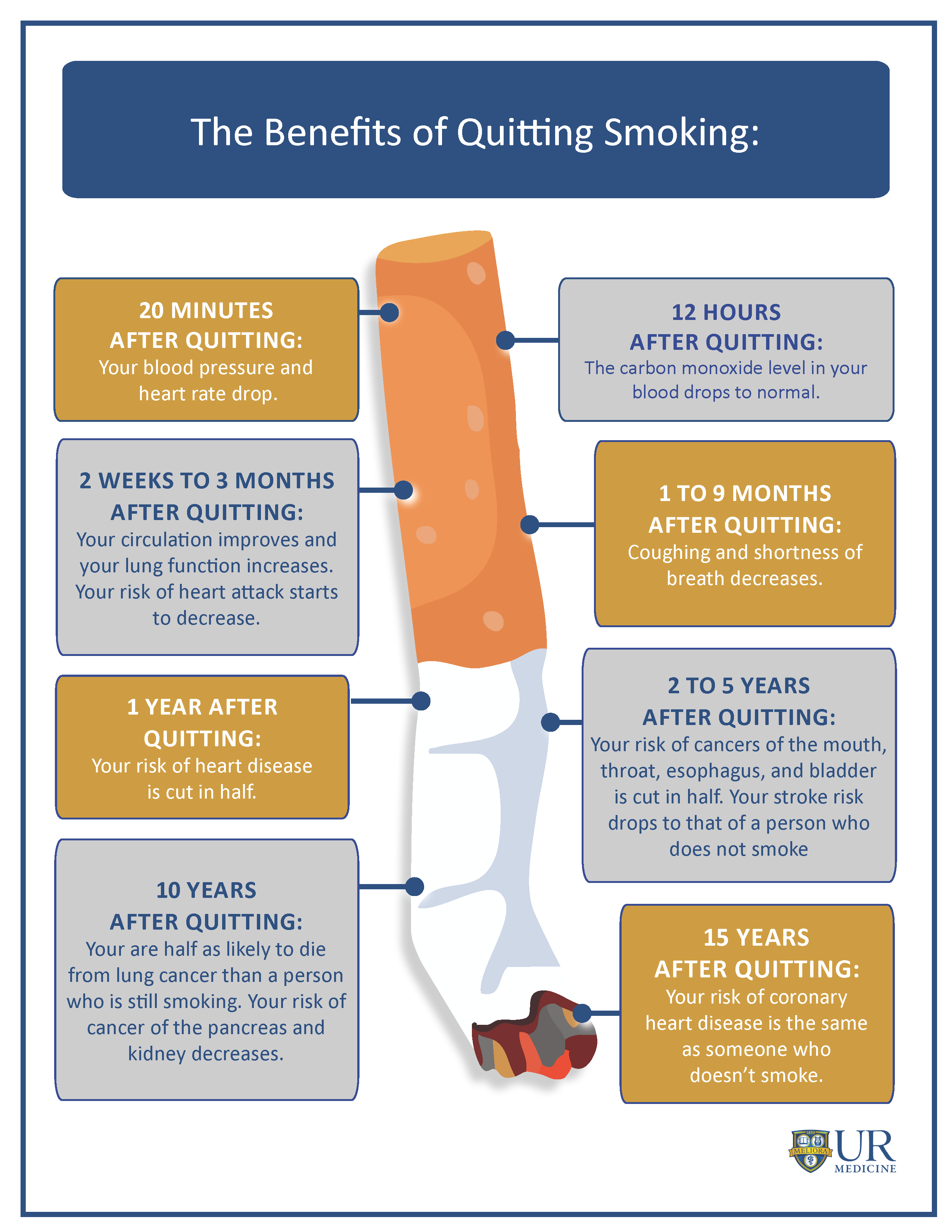How do I quit smoking? 
Wanting to quit is the first step! There are many resources available for quitting smoking.
UR Medicine Thoracic-Foregut patients have access to an internal smoking cessation program which uses a combination of counseling and/or medication management to increase your chances of successfully quitting smoking. Our program is especially focused on the reduction of smoking before surgery. We offer both in person and video visits with certified tobacco treatment specialists.
Smoking Cessation Resources
Within UR Medicine:
- Thoracic Surgery Cessation Program
- Center for Community Health and Prevention
- Wilmot Cancer Institute - Support through tough text messages
Other Resources:
What are my treatment options?
Using both counseling and medication doubles your chances of successfully quitting smoking. If you have previously tried to quit and have been unsuccessful, it is not uncommon to need to try again and often means a change to your treatment plan is needed. Our team is here to help you find the options that work best for you.
Prescription Medications:
- Varenicline (formally sold as Chantix) works in two ways. First, it provides a mild version of nicotine’s effects. This helps reduce withdrawal symptoms and cravings. Second, it stops your brain from feeling the pleasurable effects of nicotine when you smoke. This makes smoking less appealing.
- Bupropion (also sold as Zyban or Wellbutrin) blocks the effects of nicotine in your brain. This makes smoking feel less pleasurable, but it does not replace the effect of nicotine.
- Nicotine nasal spray is a nicotine replacement therapy that is sprayed into the nostril and absorbed into the nasal lining and bloodstream. This product provides nicotine without the other harmful effects of cigarettes.
Other Alternatives:
Nicotine replacement therapy (NRT): Over the counter nicotine replacement therapies can help satisfy nicotine cravings by giving the body small amounts of nicotine. They can help make quitting easier. These options come in patches, lozenges and gum.
Behavior therapy: Used independently or in combination with NRT or non-nicotine medication. Cessation counselors can help you learn strategies to cope with cravings, tackle behavior change, recognize triggers, and handle situations that may trigger wanting to smoke.